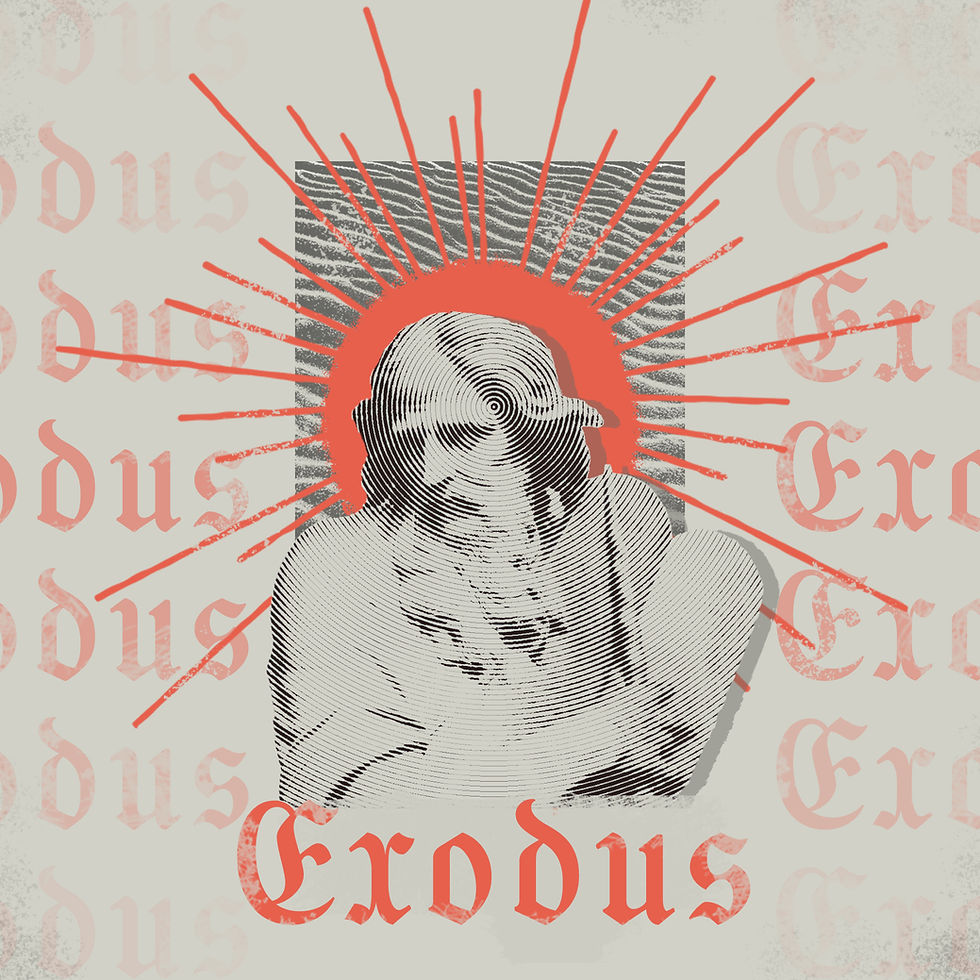Sermon Guide: Galatians 1:1-5 "Paul's Gospel"
- Jon Watson

- May 27, 2025
- 3 min read
Key Passage(s)
Galatians 1:1–5 ESV
Paul, an apostle—not from men nor through man, but through Jesus Christ and God the Father, who raised him from the dead— and all the brothers who are with me,
To the churches of Galatia:
Grace to you and peace from God our Father and the Lord Jesus Christ, who gave himself for our sins to deliver us from the present evil age, according to the will of our God and Father, to whom be the glory forever and ever. Amen.
Sermon Overview
Instead of opening this letter to the Galatian churches with a thanksgiving for them — as Paul normally does — he begins by stating that he is astonished that they are so quickly deserting Jesus. The Galatians didn’t think that they had deserted Jesus! But Paul labors for Christ formed in them through the book of Galatians by demonstrating that departing from true gospel doctrine is deserting Jesus himself. In these first handful of verses, Paul sets out the terms of true gospel doctrine.
Sermon Structure
#1 The Good Way
The easy way: dismiss the importance of right knowledge, and hope for the best
The good way: stand on the importance of knowing, assenting to, and trusting the real Jesus
#2 The Good News
• The gospel is from God,
• about substitution,
• for deliverance,
• through Jesus’ obedience,
• to the glory of God, alone.
Definitions & Explanations
Gospel: It simply means “Good News.” It is not merely information (though it, of course, contains information); it is news — news which motivates and requires response. “The queen is eating dinner tonight” is information. “The queen is eating dinner at your house tonight” is news which requires action!
Doctrine: Refers to the content of a teaching. It’s a clear, organized teaching about a biblical truth. For example: “Jesus was crucified.” That’s an event in history. “Jesus was crucified for you, to reconcile you to God.” That’s doctrine.
Epistle: An epistle is a letter, written from someone, to someone, because of some circumstance or occasion. In the First Century Greek-speaking world, epistles commonly followed a predictable formula, like Paul’s letters. They begin with Paul identifying himself, greeting the recipients, thanking God for them (except in Galatians!), teaching, and personal notes at the end.
Faith (classic theological definition): Faith is comprised of Notitia (knowledge), Assensus (assent), and Fiducia (trust). This is not a biblical formula, but is a logical analysis of the Bible’s teaching on the nature of faith. For instance, see Romans 10:13–17 and James 2:18–26.
Soli Deo Gloria: A 16th Century Latin theological creed, which means “To God alone be the glory.” This, along with the other four “Solas,” became the rallying cry of the Protestant Reformation. (The others are Faith Alone, Grace Alone, Christ Alone, and Scripture Alone as our only rule of faith and life.)
Questions for Discussion & Reflection
(Read verses 6 and 7 again out loud.) Paul is saying that a different gospel is a non-gospel. What false, non-gospels do you think are most tempting or prevalent today?
If knowledge is essential for true faith, then sincerity, emotion, and experience alone are insufficient. How does — or how should — that idea shape our own devotional lives, and our evangelistic and missionary zeal?
Faith is described as Knowledge + Assent + Trust. In your own faith journey, how have you seen these three elements play out? How has the Lord helped you along the way?
What role does substitution play in the true gospel message? Why is it essential?
If the true gospel leads to God’s glory (not ours), how should that shape the way we share or respond to the gospel?


Comments